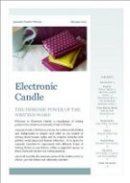The below poem was showcased at the University of Kent’s Amnesty International group’s ‘Slamnesty’ event back in December 2014. It discusses the the Dover Detention Centre, which is based in an idyllic location but harbours scenes of torture and gross human rights violations. This poem follows a family through their journey into the detention centre and their exit via a third-person narrative.
‘A golden backbone hugs the great green mountains,
They stand comradely, whilst lapping aqua waves, with their calming winds, embrace them like a mother comforting a child.
This was home once, but winds can turn and just as trees are uprooted in merciless gusts of fury, so are families.
The truck rattles like an incessant earthquake as it throws its passengers back and forth, dancing over the potholes on the sandy road to freedom.
Eyes wide with fear take gratitude in every hop and skip as they travel closer to a better life,
Eventually, they glimpse their new home.
Foreheads crease as uniformed men grab limbs, collars, whatever they can,
Children scream as their mothers and fathers are dragged away,
They can’t understand- their parents said this place was safe, they said it would be like paradise.
So why are they in these little white rooms with their tiny windows too high for them to see through, even when they stand on tiptoes?
Much later a man appears; he talks like a child babbling the words of their language,
At first the child laugh, then they realise the other mean don’t know a word of their language and they wonder if they will ever be heard.
Soon after they are herded through corridors like simple livestock.
There’s another truck- maybe they’re going back home, the child think with excitement, home doesn’t seem so bad now.
But no, more prison cells, more crying and wounds, both physical and mental are dug into repetitively with the cold instruments of cruelty.
Their travel companions cough and splutter,
But when they ask for help the men shout and beat them,
When they complain they are taken away and no one knows when a child will see their parents again.
Somehow, as if by some miracle, the dreadful cacophony ceases.
Their mothers and fathers tell them they are free and can find peace in this new country.
They are filled with an optimistic pretence whilst they know they could be rounded up and brought back.
Their child tug on their coat sleeves,
Only one question is asked,
Mummy, why can’t we go home?’


